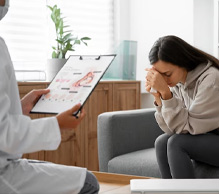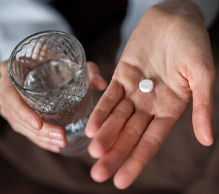What is Depression?
Depression goes beyond typical feelings of sadness or the “blues” and can lead to a range of physical and emotional symptoms that significantly affect a person’s life. With depression, people cease to enjoy life and become apprehensive about social interactions and other simple everyday joys of life. According to the World Health Organization, more than 350 million people suffer from it globally. Depression often tends to cause a vicious circle from which it seems impossible to escape.
These symptoms often interfere with one’s ability to work, study, sleep, eat, and maintain healthy relationships.
Internal causes of depression :
Biological Factors
Neurological Factors
Certain neurological conditions and brain injuries can contribute to depression. Changes in brain
Personality Traits
Depression could be a psychoneurotic manifestation of a personality trait. And people can
Hormonal Changes
Hormonal imbalances, such as those occurring during pregnancy, postpartum, or menopause,
External causes of depression :
Psychosocial Stressors
Life events, such as the loss of a loved one, relationship difficulties, financial problems,
Trauma
Exposure to traumatic events, including physical, emotional, or sexual abuse, can lead to the
Chronic Illness
Suffering from a chronic medical condition, such as cancer, diabetes, or heart disease, can increase the
How is depression diagnosed?


Diagnosing depression involves a comprehensive assessment by a mental health professional, such as a psychiatrist or psychologist. The diagnostic process typically includes the following steps



Clinical Interview
A detailed clinical interview is conducted to assess the individual's mood, thoughts,

Diagnostic Criteria
Mental health professionals rely on established diagnostic criteria, such as

Self-Report Questionnaires
Patients may be asked to complete self-report questionnaires that help assess

Psychological Assessments
In some cases, psychological assessments may be employed to evaluate
Available treatments
Depression is a treatable condition, and several effective treatment options are available:

Psychotherapy
Cognitive-behavioral therapy (CBT), interpersonal therapy, and psychodynamic

Medication
Antidepressant medications, such as selective serotonin reuptake inhibitors

Lifestyle Changes
Regular exercise, a balanced diet, adequate sleep, and stress management

Support Groups
Joining support groups or seeking social support can help individuals cope with
